This traditional barley water recipe is an old fashioned, thirst quenching summer drink here in England.
The recipe I share below is for the version made for the British Royal family.
I have a bit of a thing for old cookbooks.
I love all the penny-pinching ones from the 1970s with their lurid pictures and heavy use of aspic.
But my true love is anything older than 1950.
Whilst I wouldn’t necessarily cook a three course meal directly from one (the English weren’t renowned for their culinary skills in times of old), they are a fascinating insight into where many of our kitchen habits come from.
One day, one of these old cookbooks pages were opened and out fluttered this little scrap of newspaper boasting the recipe for Royal Barley Water as made in the Queen’s kitchen.
Someone, somewhen had ripped it out and stuffed inside this cookbook for me to find.
How could I refuse such an invite?
It has been many years since I tasted barley water made from concentrate, so it’s hard to tell you how it tastes in comparison.
It feels nourishing along with being tasty, and as you get to sweeten it to your taste, you can make it just how you like it.
How to Make Barley Water
It’s a very simple recipe, but does take a while for the barley to cook.
So put on some good music, or even a film, and let’s get to it!
1/ boil the barley
To extract the goodness and flavour from the barley we need to boil it in plenty of water.
To do this, tip the pearl barley and water into a large saucepan.
Bring to a boil, then pop on the lid, reduce the heat and let it simmer for one hour.
2/ peel the fruit
Meanwhile, use a potato peeler to peel the outer, coloured skin from one of the lemons, and three of the oranges.
Try not to get too much of the white pith as this will make the drink bitter.
Place the peels into a large mixing bowl.
3/ strain the barley water
Pour the water and cooked barley into a sieve balanced over the bowl of fruit skins.
Add the Demerara sugar whilst the water is still piping hot and give it a good stir until dissolved.
Depending on your taste, you may wish to add more sweetener later.
However, once the liquid is cold any extra sugar won’t dissolve easily. Instead, you’ll need to boil a kettle and dissolve the extra sugar in few tablespoons of boiling water first. That can then be added to the barley water.
4/ leave the barley water and citrus peels to steep and cool
Place the bowl somewhere cool for the water to come down to room temperature, and for the flavour from the zest to be steeped into the liquid.
Once cool, strain the rinds keeping the liquid. The peels can be added to the compost bin.
5/ add the fruit juices
Squeeze the juice from the peeled lemons and oranges and add it the barley liquid.
Stir well, and then this can be poured into a jug or carafe and kept in the fridge to cool fully.
Serve chilled or with ice.
That’s it! I hope you enjoy this barley water recipe if you give it a go.
Do feel free to tag me in any images you share of this, or any of my other recipes, online. You can find me pretty much everywhere as @hedgecomber, and I try to share all the pics I see.
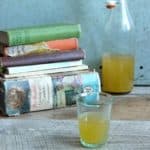
- 1 teacup pearl barley
- 4 pints boiling water
- 2 lemons
- 6 oranges
- Demerara sugar to taste
- Put barley in a large sauce pan, add boiling water, simmer over a low heat with the lid on for one hour.
- Strain water from the barley, adding the rind of one lemon and three oranges.
- Allow to stand until cold.
- Strain off the rinds and add the orange and lemon juice.
- Keep in a refridgerator.
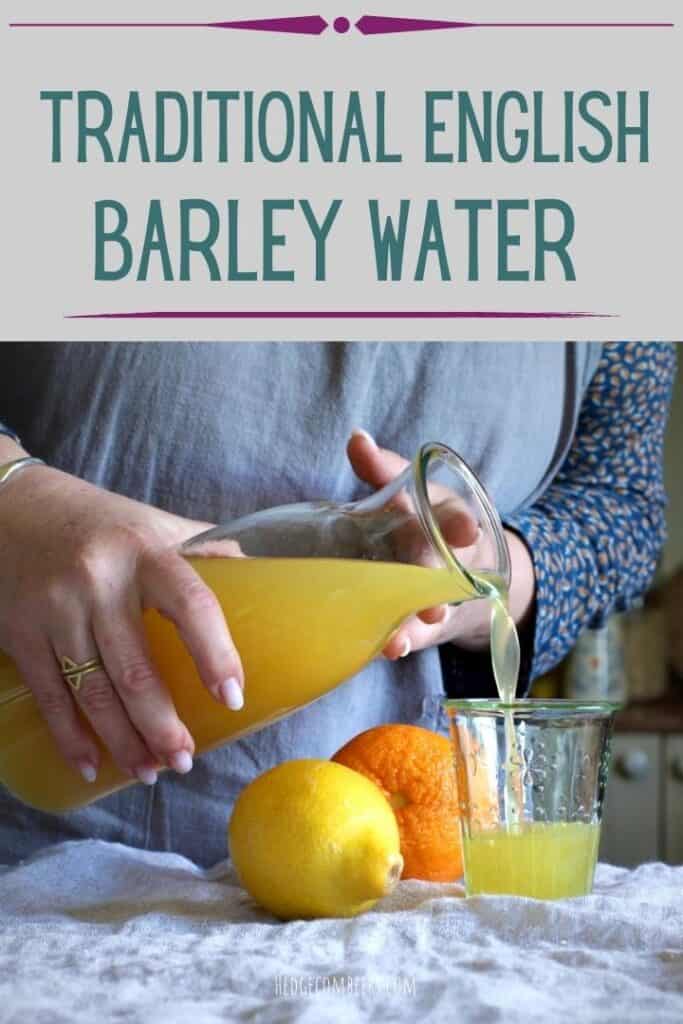
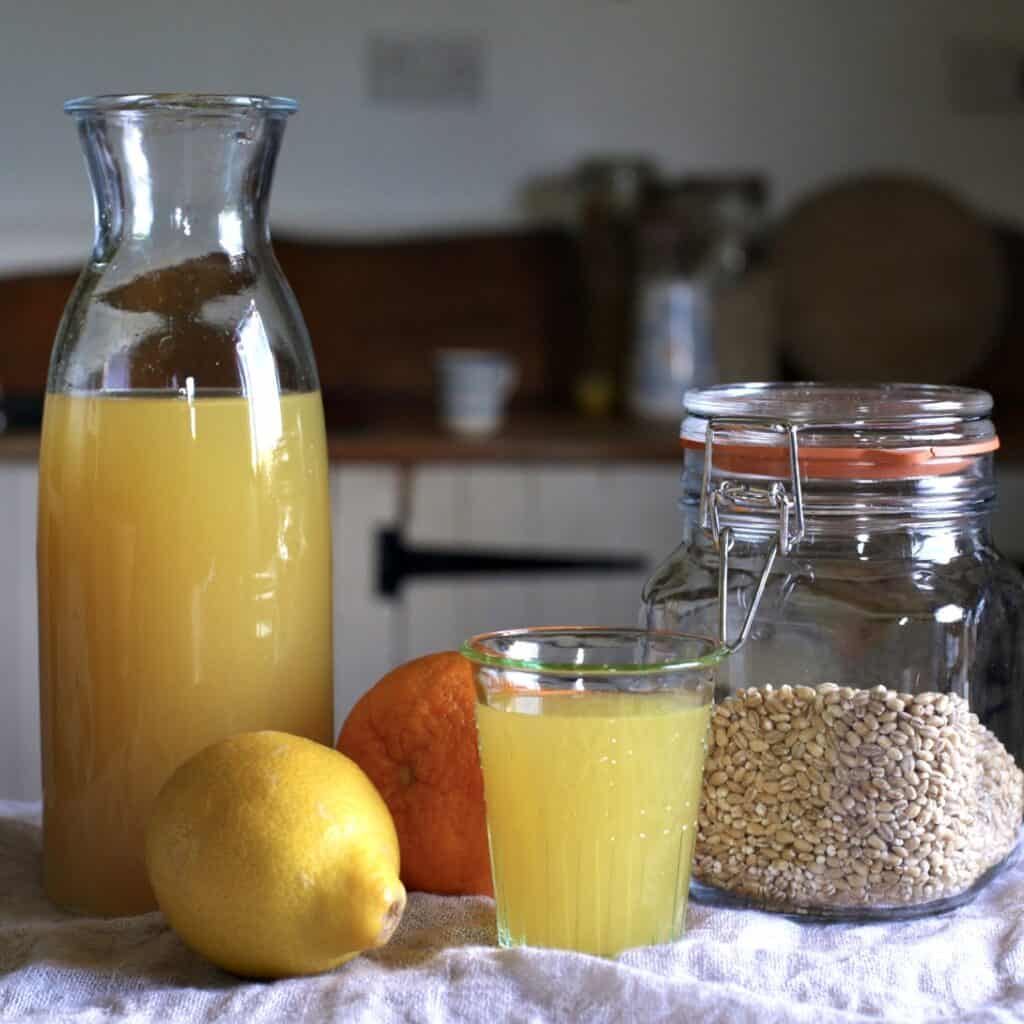
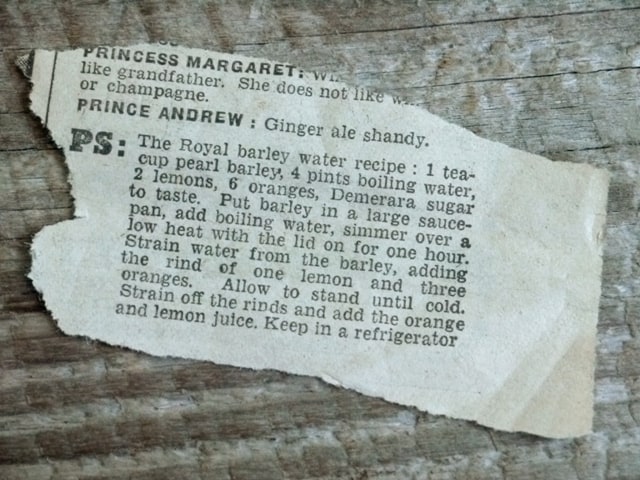
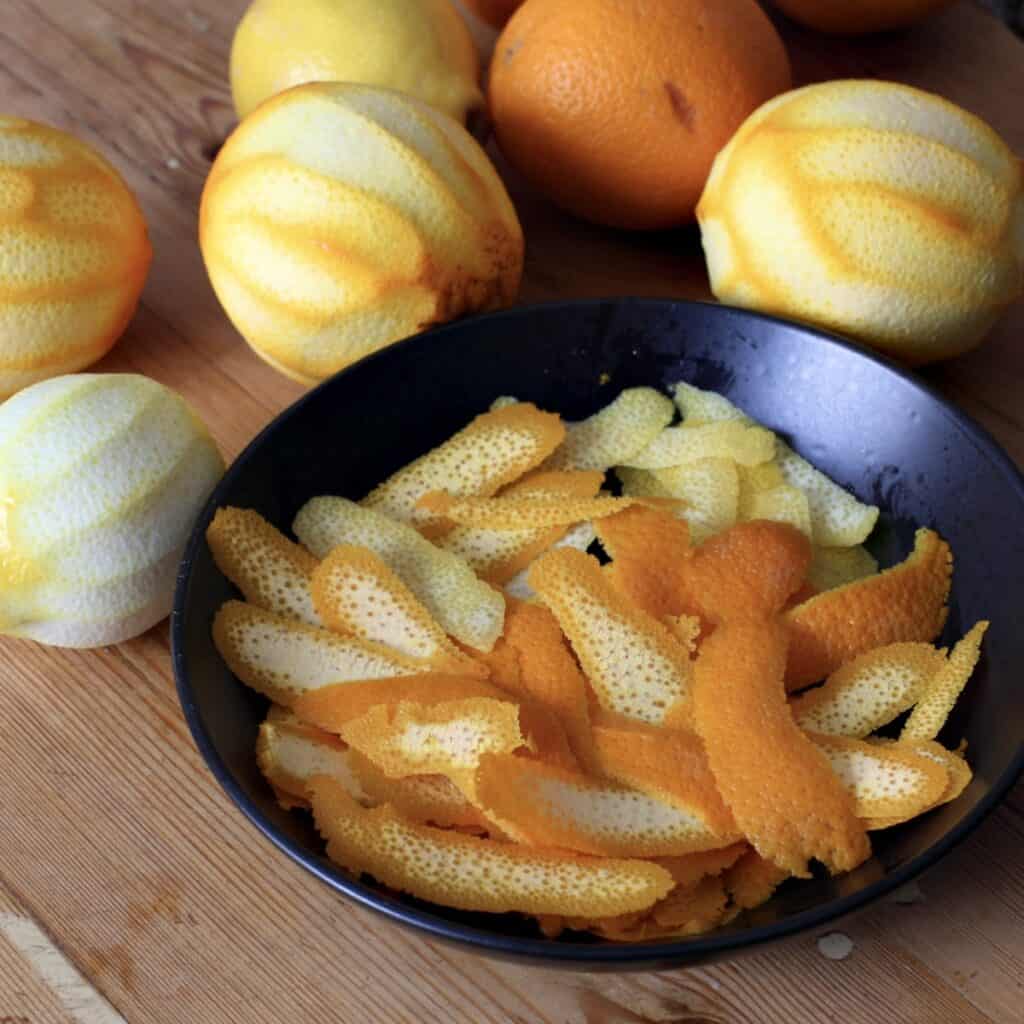
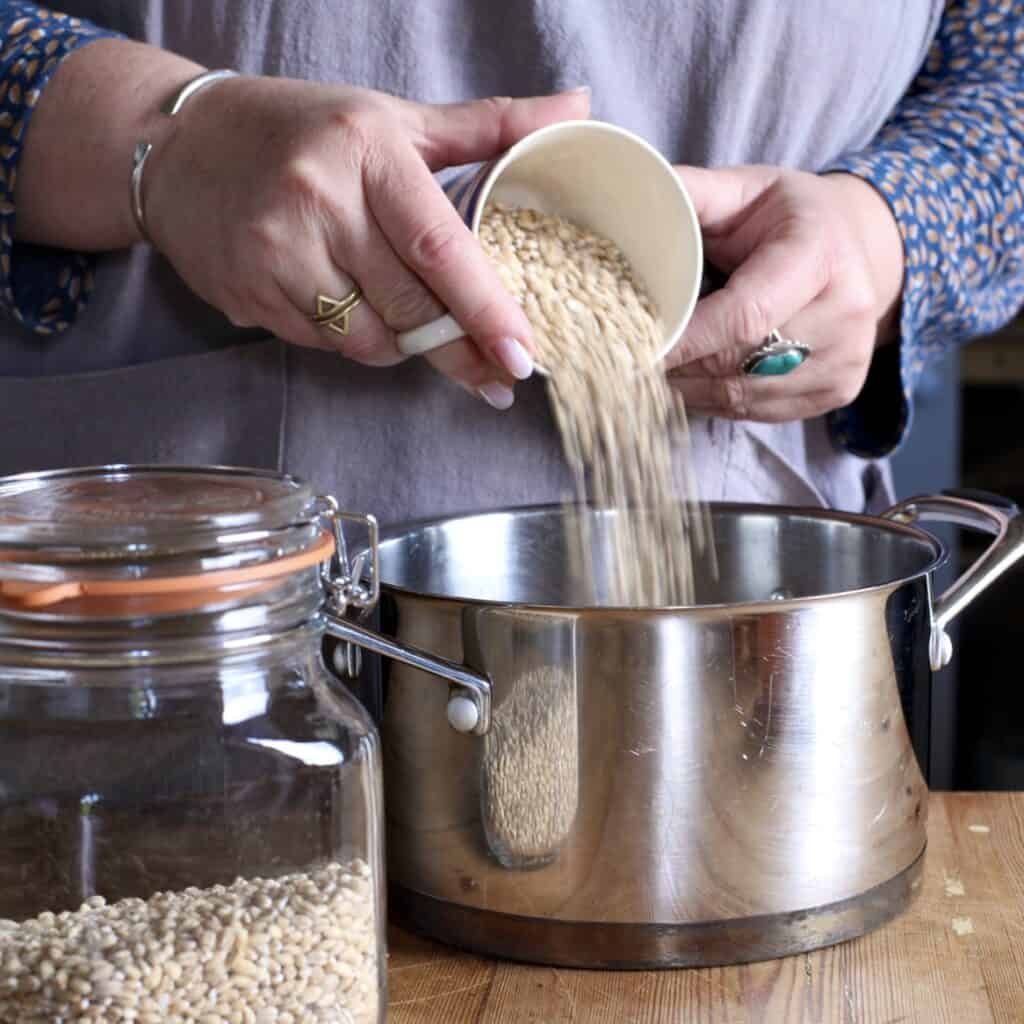
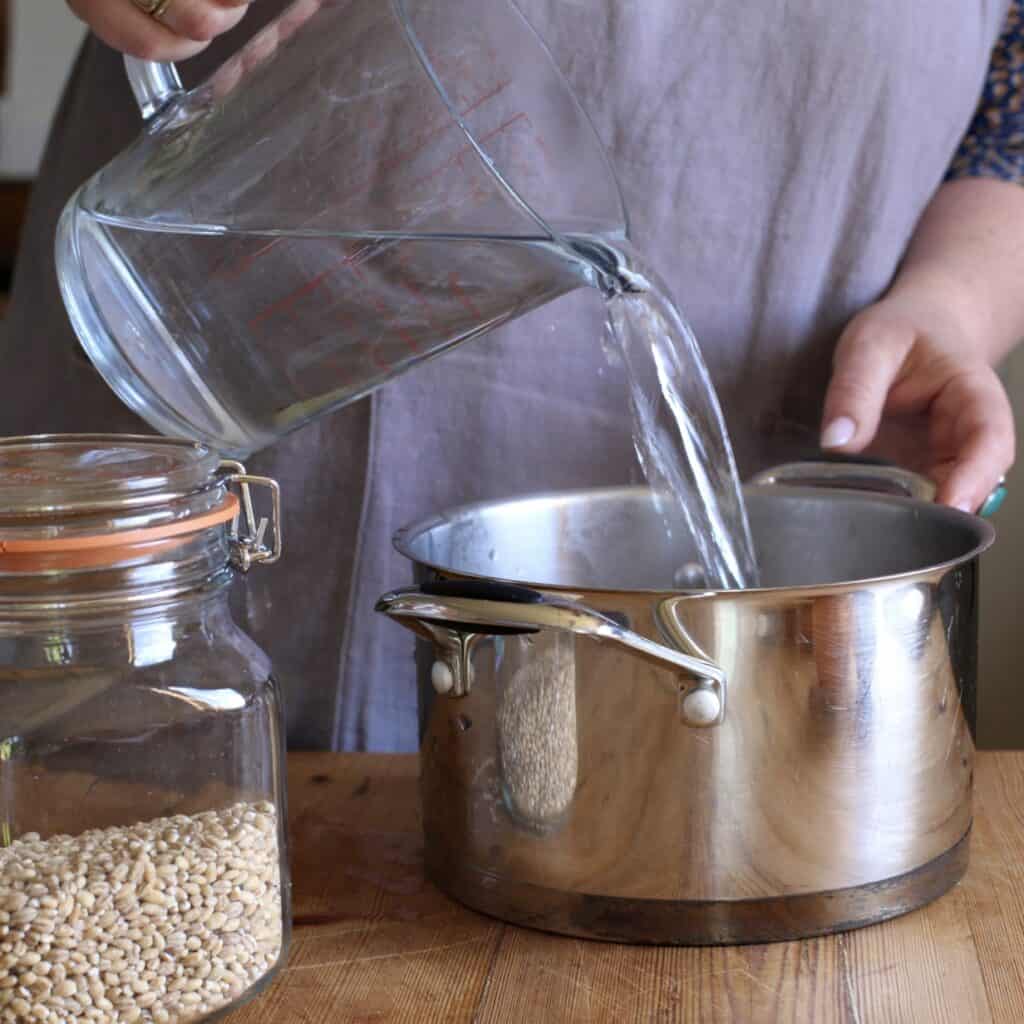
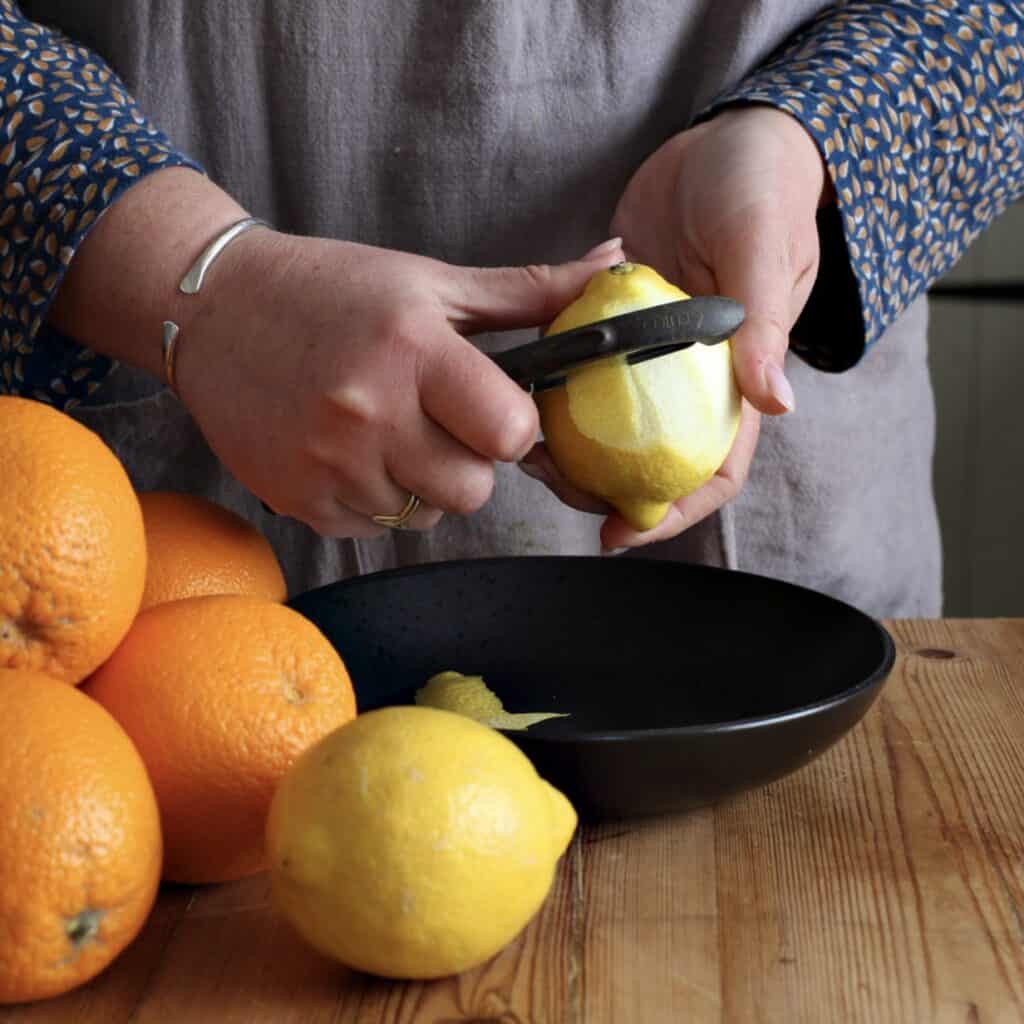
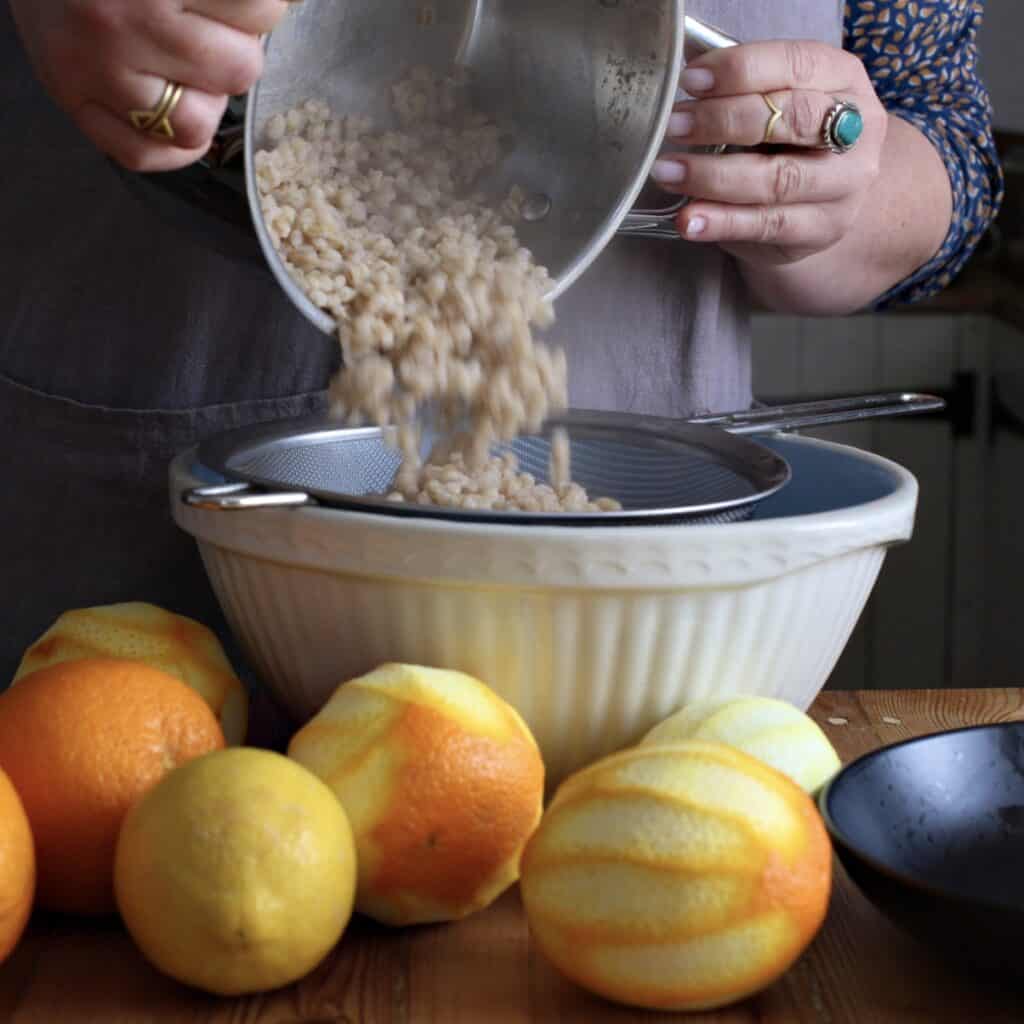
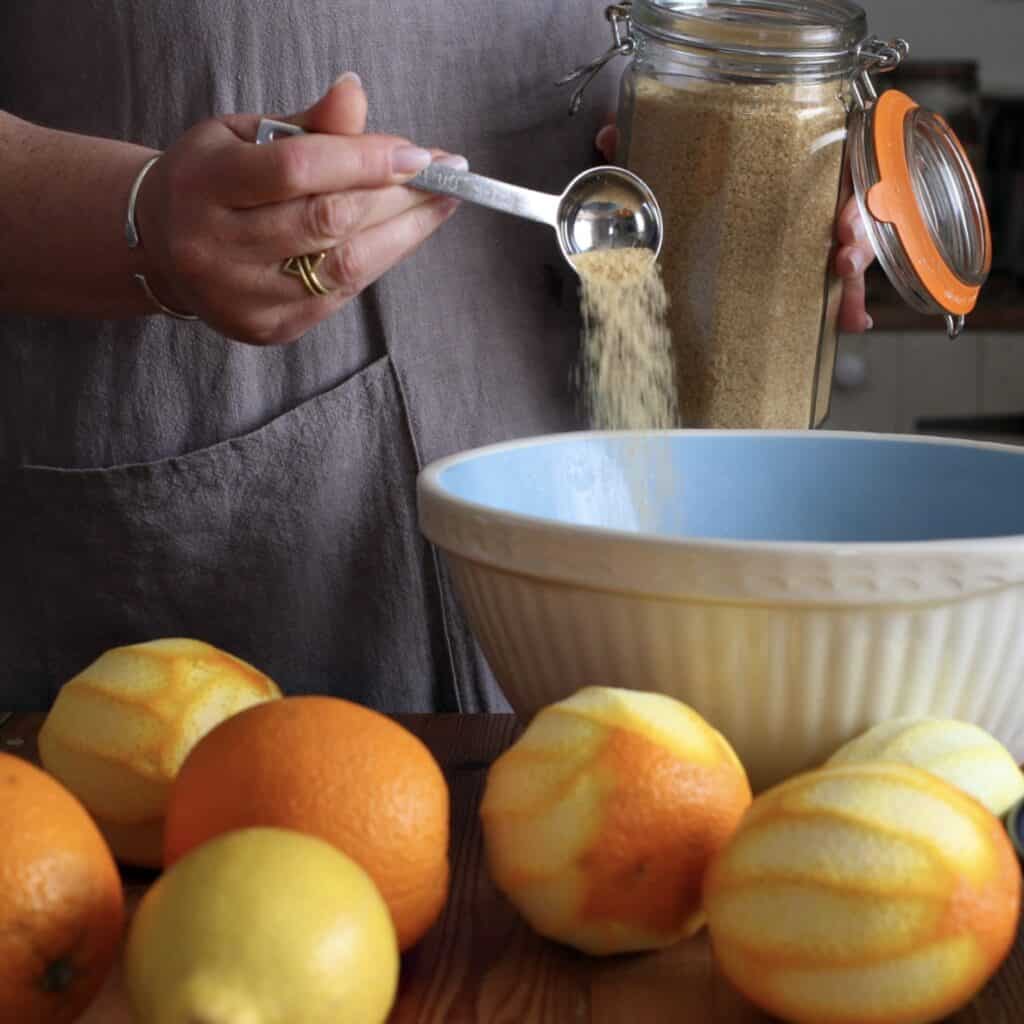
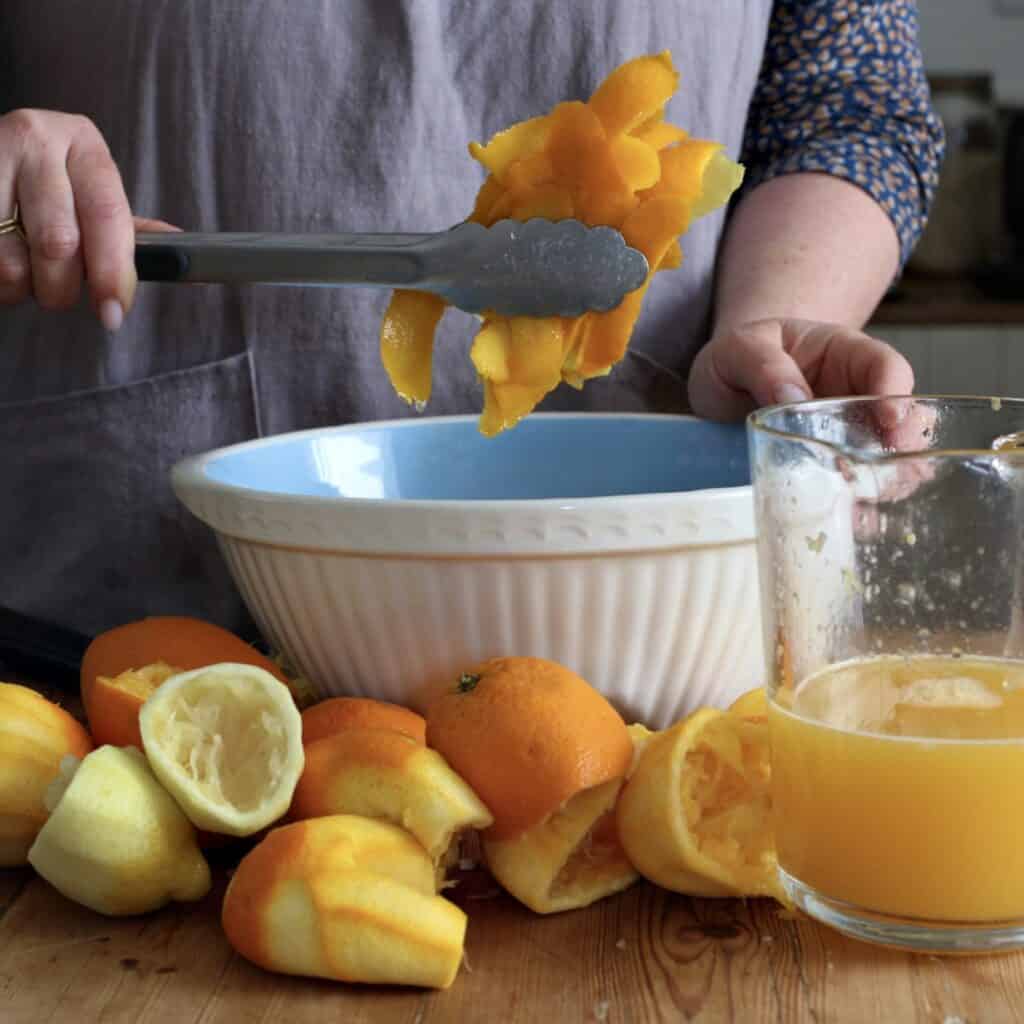
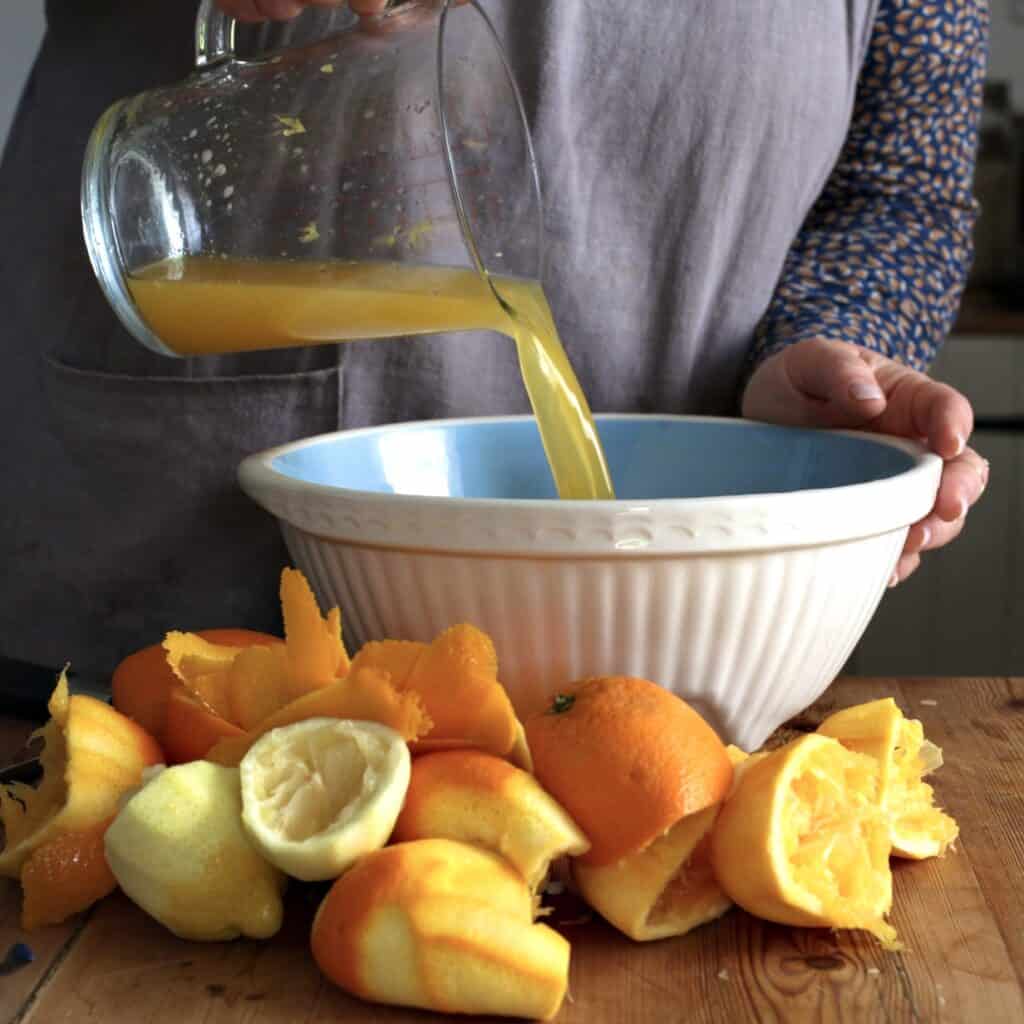
Glamorous Glutton says
I love those fluttering bits of paper, they often hold such gems. It looks like this one has too. GG
Jane Sarchet says
I agree GG and to think someone left it in that book for me to find goodness knows how many years later. Magical :)
Janie x
Ness (@jibberjabberuk) says
I honestly didn’t know barley water was made from pearl barley and it’s such a simple process. My cookbooks are full of scribbles and scraps of paper plus the odd quotation and poem!
Jane Sarchet says
I know, I had no idea either Ness!
Janie x
Simone says
Oooo what great fun Janie! You know I have a thing for really old cookbooks too and have quite a few now of around the 1930s. In fact I am thinking of starting maybe a series of recreating some of those dishes and redoing the photos. The food photography in those days was hilarious, if existing at all and I am dying to do something fun with those…:) This one would fit right in!
Jane Sarchet says
Oh I’m in! Let me know when you start & I’ll do some too – what a giggle!
Janie x
Solange says
What a lovely old recipe which put a whole new light on pearl barley. I love ald recipes books too and I can assure you that the French ones are not any better. Most recipes contain enough fat to kill a bull in one setting and the rest are so outrageously pompous that they make you throw up just by reading them.
Thank you so much for entering this in Inheritance Recipes
Jane Sarchet says
Thanks Solange :)
Janie x
Margot @ Coffee & Vanilla says
Sounds amazing!! Thank you for entering out #InheritanceRecipes challenge :)
Jane Sarchet says
Thanks Margot :)
Janie x
David says
Thanks remember that recipe appearing in the Sunday Express in about 1981. Supposedly shops all over the country sold out of pearl barley in the wake of it.
Jane Sarchet says
No way! David that is hilarious, thanks so much for taking the time to share it!
Janie x
David says
No thank you for publishing it, made some , amazingly whole family like it (My family are hard to please)
Jane Sarchet says
Blimey, I feel honoured!!!
Enjoy your summer David, and thanks again for taking the time to comment :)
Janie x
Chelsea Ouellet says
So cool! Thanks for sharing
Jane Sarchet says
My pleasure Chelsea :)
Jane x
Rachael says
And seems as if you should be able to eat the barley as well. No? I’ve been searching all over for this recipe and I’m definitely going to try it. Thank you!
Jane Sarchet says
That’s so cool Rachel and I’m so glad you found what you were looking for!
I never thought about using the barley afterwards, would you keep me updated on how this experiment goes? Thanks so much :)
Jane x
Niki says
Thanks for sharing this. My grandmother used to make this for me 50+ years ago. Still love it but, have to confess to buying it and never having made it from scratch. Will definitely be making it now. As to using the barley, l’m certain it wouldn’t have been wasted, at the very least it would have been fed to household poultry. There’s probably not a lot of nutrients left but, as it’s only been boiled in water, there is no reason it couldn’t still be added to soup. At the very least it would add welcome bulk and carbohydrate.
Jane Sarchet says
That’s a great point Niki, and I love that you have fond memories of having this with your Grandmother :)
Jane x